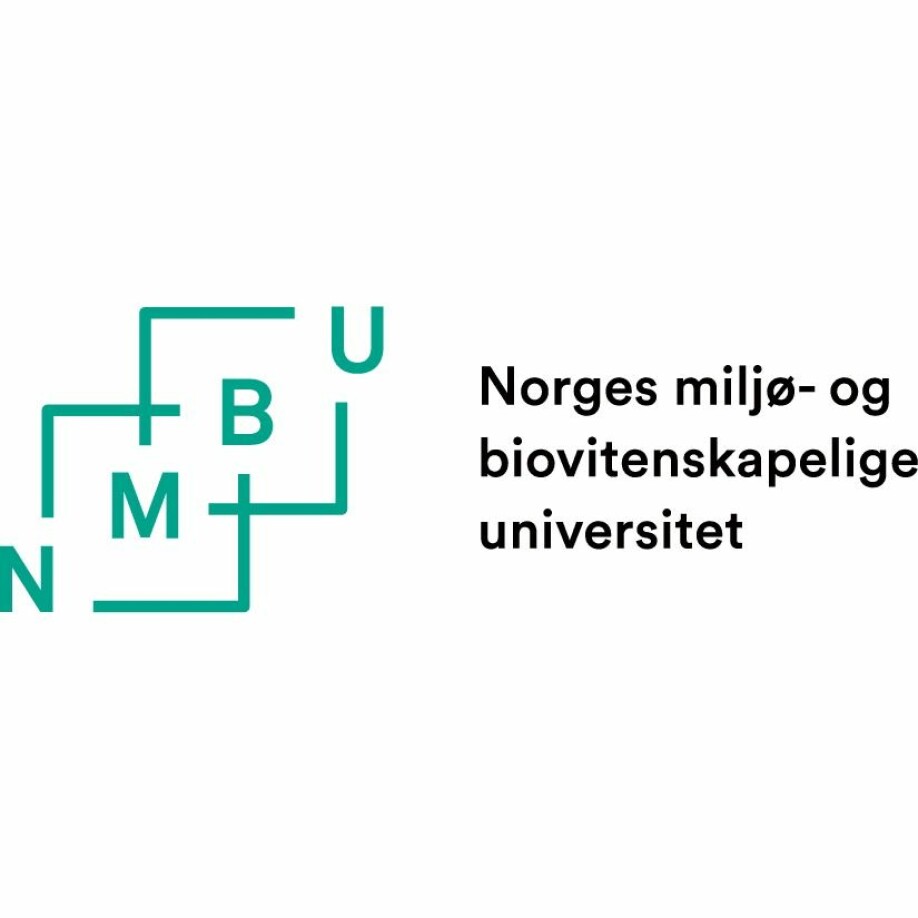Ledig stilling ved NMBU
PhD research fellowship within enzyme engineering and enzymology
Deadline 04.04.2019

About the position
The Faculty of Chemistry, Biotechnology and Food Science (KBM) at the Norwegian University of Life Sciences (NMBU) invites applicants for a vacant position as PhD research fellow within the fields of enzyme engineering and enzymology.
The person appointed will be associated with the Natural Product Chemistry and Organic Analysis (NPCO) and The Protein Engineering and Proteomics (PEP) groups at KBM.
The main goal of the project is to develop advanced enzyme technology to convert the recalcitrant polysaccharide chitin into products of value. The project is funded by NMBU.
The overarching goal of the proposed research is to develop sustainable high-tech enzyme technology for a modern biorefinery approach. This includes explorative engineering of lytic polysaccharide monooxygenases (LPMO) and glycoside hydrolases (GH) to different types of reaction conditions. To do so, we need to increase our understanding of LPMO and GH actions on both at a fundamental as well as an applied level. One target is to use chitin- and cellulose-rich biomass as a highly abundant renewable source to produce products of value.
Due to the discovery of LPMOs and their mode of action, major progress has been made in the enzymatic conversion of lignocellulose. We intend to push this progress further and also implement these technologies in chitin biorefining.
Main tasks
- Carry out high-level research relevant for the project, including critical assessment of the literature, planning and performance of experiments, oral presentations and discussion of the work, and writing scientific publications.
More details on the type of work to be conducted may be inferred from the items listed below under “The following qualifications will be considered beneficial for the indicated positions”.
The successful candidate is expected to have a PhD education plan approved by KBM within the first months of appointment, and to complete the PhD by the end of the project period.
Qualifications and skills
The successful applicant must meet the conditions defined for admission to a PhD programme at NMBU. The applicant must have an academically relevant education corresponding to a five-year Norwegian degree programme, where 120 credits are at master's degree level. The applicant must have a documented strong academic background from previous studies, and be able to document proficiency in both written and oral English. For more detailed information on the admission criteria please see the PhD Regulations and the relevant PhD programme description.
The applicant must document expertise and interest in the research subject.
Required academic qualifications
- The successful applicant must hold a master’s degree within a relevant scientific field (e.g. biochemistry, biotechnology, chemistry)
- Relevant training and research experience, including experience in the recombinant production, purification and handling of proteins
The following qualifications will be considered beneficial
- Experience in analytical tools for the analysis of polysaccharides and/or their degradation products.
- Experience in advanced enzyme kinetics and/or biophysical methods for enzyme characterization.
- Experience with protein engineering.
- Experience in working with polysaccharides.
- Experience in working with glycoside hydrolases and/or lytic polysaccharide monooxygenases, and/or redox enzymes.
- Experience in biomass pretreatment and bioprocess development.
We are looking for candidates who are:
- Hard-working, ambitious and accurate
- Genuinely interested in scientific research and its industrial applications
- Good social and communicative skills
Good communicative skills, orally and written, in English, and preferably in a Scandinavian language are required.
Remuneration and information
The position is placed in government pay scale position code 1017 PhD. Fellow, wage framework 20, salary grade 51-62. PhD Fellows are normally placed in salary grade 51 (NOK449 400 per year) on the Norwegian Government salary scale upon employment and follow ordinary meriting regulations.
Employment is conducted according to national guidelines for University and Technical College PhD scholars.
For further information, please contact:
- Professor Morten Sørlie by e-mail: morten.sorlie@nmbu.no, or by phone +47 67 23 25 62
Application
To apply online for this vacancy, please click on the 'Apply for this job' button above. This will route you to the University's Web Recruitment System, where you will need to register an account (if you have not already) and log in before completing the online application form.
Applications should include (electronically) a letter of intent, curriculum vitae, full publication list, copies of degree certificates and transcripts of academic records (all certified), and a list of two persons who may act as references (with phone numbers and e-mail addresses). Publications should be included electronically within the application deadline. The relevant NMBU Department may require further documentation, e.g. proof of English proficiency.
Application deadline: April 4th 2019
Printed material which cannot be sent electronically should be sent by surface mail to Norwegian University of Life Sciences, Faculty of Chemistry, Biotechnology and Food Science (KBM), P.O. Box 5003, NO-1432 Ås, within April 4th 2019. Please quote reference number 18/02772
If it is difficult to judge the applicant’s contribution for publications with multiple authors, a short description of the applicant’s contribution must be included.






